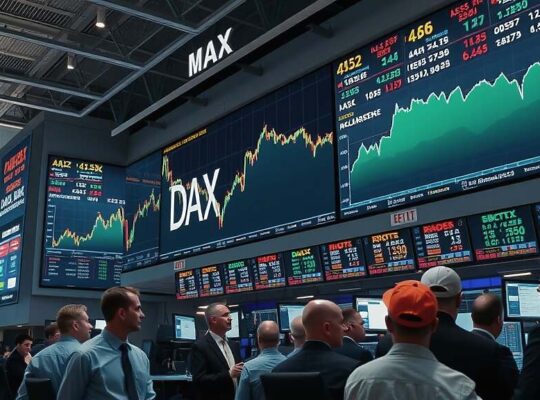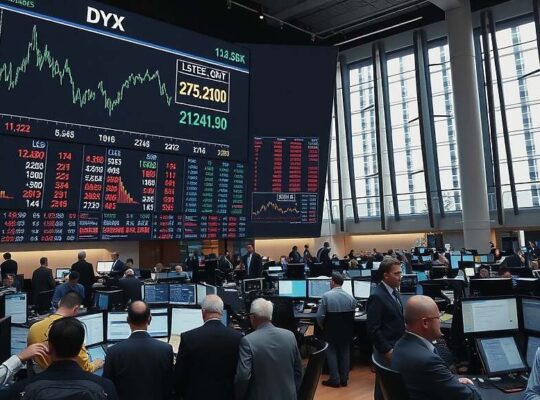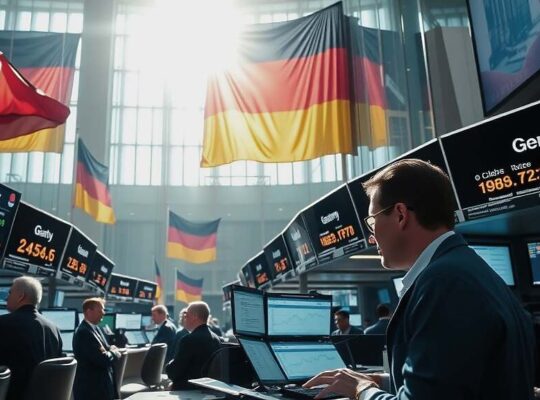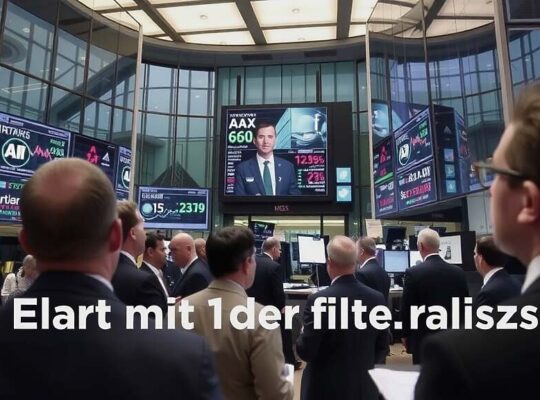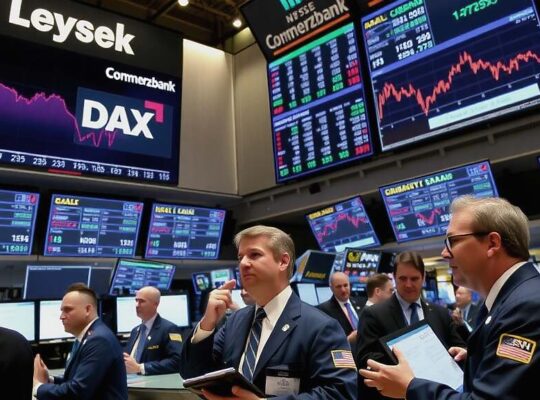German equities traded in a subdued range on Tuesday, reflecting a pervasive caution among investors and underlining concerns about the underlying health of the German economy. The DAX index hovered narrowly below the previous day’s closing level, registering around 24,270 points by midday – a marginal decrease of 0.2 percent. While Deutsche Post, Infineon and Merck showed resilience, Symrise, Hannover Rück and Commerzbank lagged behind.
Market analyst Andreas Lipkow characterized the trading environment as one of “limited range” attributing the muted performance to a “waiting attitude” among market participants. He specifically cited the latest GfK consumer climate data, which again fell short of expectations, reinforcing the image of a struggling German economy. “Companies are currently going through a very tough time” Lipkow stated, “and this isn’t fully reflected in the DAX 40’s performance.
A significant element driving this lack of dynamism, according to Lipkow, is the weighting of the DAX’s constituent companies. Giants like SAP, Deutsche Telekom, Rheinmetall, Allianz and Airbus, due to their sheer size and global operations, exert a disproportionate influence on trading activity. This emphasis on large, internationally-positioned corporations, however, obscures the struggles, particularly within key sectors of the German economy. Notably, the German automotive industry, a cornerstone of the German economy and responsible for approximately three percent of the DAX 40, remains comparatively underrepresented in the index’s overall trajectory. This disconnect raises questions about the index’s ability to accurately reflect the broader economic realities facing the nation.
The prevailing investor hesitancy is unlikely to dissipate until tomorrow, following the announcements of interest rate decisions from the US Federal Reserve and the Bank of Japan, as well as the release of quarterly earnings reports from technology behemoths Alphabet, Meta and Microsoft. These events offer potential catalysts for change, but until then, the DAX remains susceptible to continued volatility.
The euro experienced a slight strengthening against the US dollar, trading at $1.1657, while Brent crude oil futures declined notably, falling to $64.64 a barrel – a drop of 1.5 percent. This reduction in oil prices offers potential relief for consumers and businesses, but the underlying economic anxieties persist, underscoring the precarious nature of the current market conditions.




